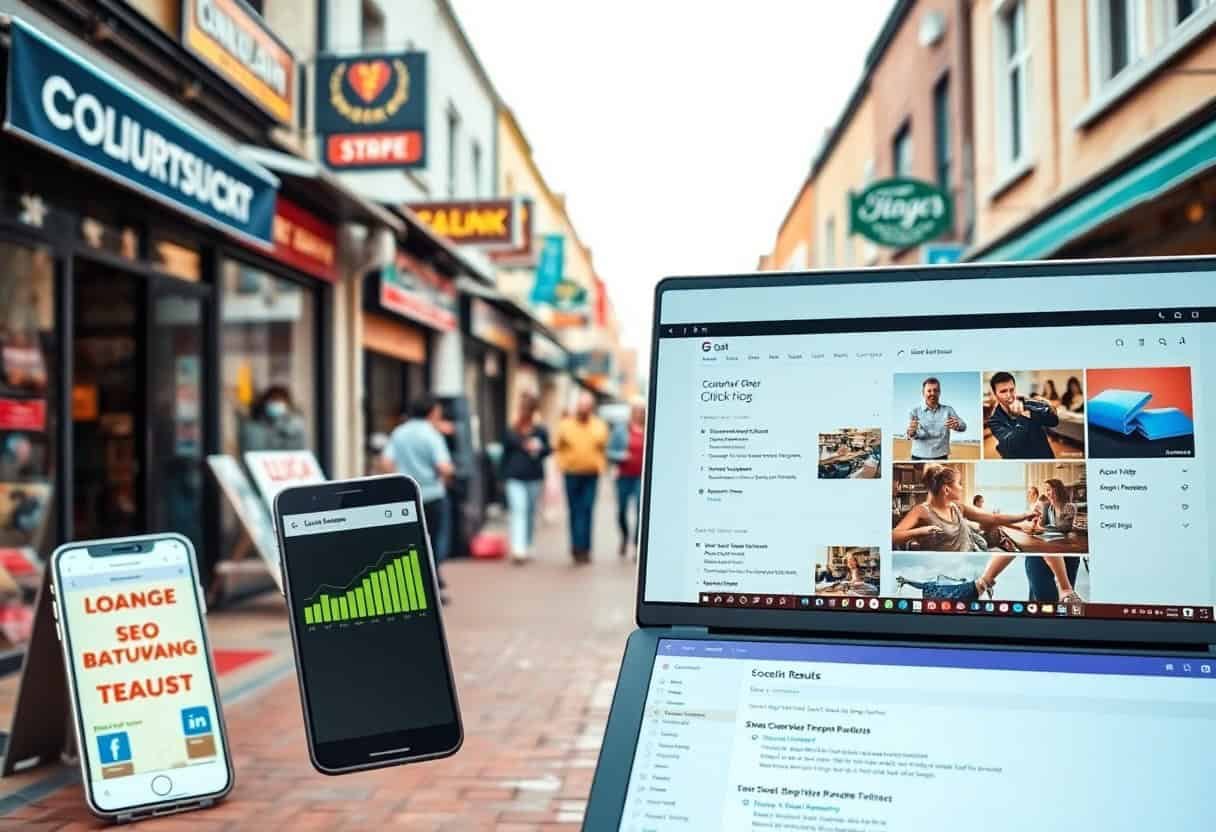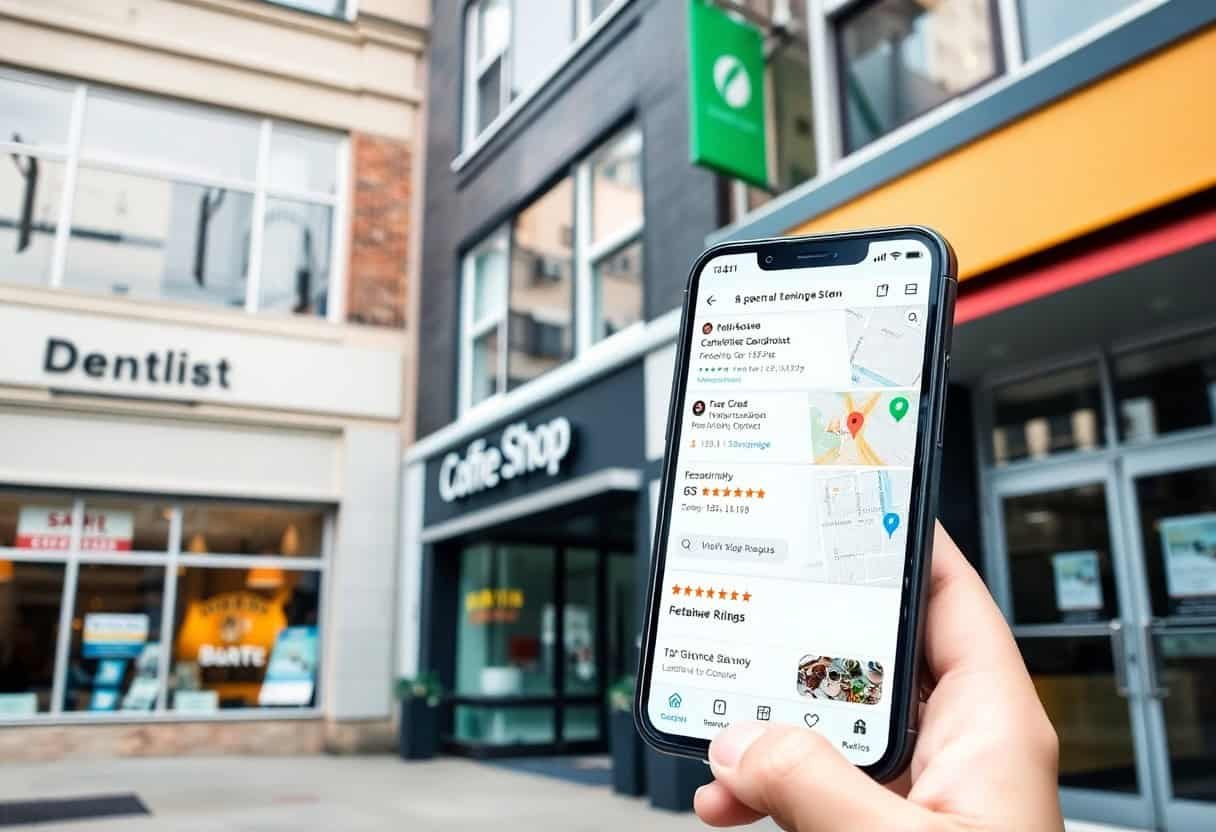There’s a multitude of ranking factors that can influence your local SEO success. Understanding these elements is crucial for enhancing your online visibility and attracting local customers. By optimizing your Google Business Profile, gathering customer reviews, and ensuring your website is mobile-friendly, you can effectively improve your local search rankings. Additionally, leveraging local keywords and maintaining consistent NAP (Name, Address, Phone Number) information across directories will further bolster your presence in search results. Focus on these factors to boost your local SEO strategies and connect with your community.
Key Takeaways:
- Google My Business optimization, including accurate business information and engaging content, significantly influences local rankings.
- Online reviews and ratings, particularly on Google, play a major role in establishing trust and improving visibility.
- Local citations and backlinks from reputable local websites enhance the authority and relevance of a business in local search results.
The Role of Google My Business in Local Success
Google My Business (GMB) serves as a cornerstone for local SEO. By creating and maintaining an accurate GMB profile, you enhance your visibility in local search results and Google Maps. This profile acts as your digital storefront, providing crucial information such as your business name, address, phone number, and operating hours, all of which help potential customers find and connect with you. A well-optimized GMB profile can significantly increase foot traffic and engagement with your business online.
Optimizing Your GMB Profile
To fully leverage your GMB profile, ensure all information is complete and accurate. Include high-quality images, a detailed business description, and relevant categories to improve your searchability. Keep your operating hours up to date and use posts to share updates, promotions, and events. The completeness of your profile directly correlates with trustworthiness, making it easier for customers to choose you over competitors.
Leveraging Customer Reviews and Engagement
Customer reviews significantly impact your local SEO ranking and the perception of your business. By actively engaging with reviews—both positive and negative—you demonstrate responsiveness and customer care. Encourage your satisfied customers to leave positive reviews and address any negative feedback constructively to build trust and credibility in your community.
Prioritizing customer reviews can enhance your credibility; businesses with a higher number of positive reviews tend to rank better in local searches. With 82% of consumers reading online reviews, your engagement in this area matters. You may also consider implementing a review request strategy, like following up via email or SMS after a purchase, making it easy for customers to share their experiences. This not only aids in gathering valuable feedback but helps improve your local ranking as well.

The Importance of NAP Consistency
NAP consistency plays a vital role in local SEO, as search engines rely on accurate business information to rank results effectively. Inconsistent NAP details can confuse customers and lead to a lack of trust, significantly impacting your visibility in local searches. Ensuring that your name, address, and phone number are the same across all platforms strengthens your online presence and facilitates better indexing by search engines, ultimately driving more traffic to your business.
Understanding Name, Address, and Phone Number (NAP)
NAP refers to the foundational elements of your business’s online identity—your name, address, and phone number. For local SEO, these details serve as imperative identifiers, linking your business to a specific location and making it easier for potential customers to find you. Search engines use this information to provide relevant local listings, making accuracy paramount for optimal visibility.
Strategies for Maintaining NAP Accuracy Across Platforms
To keep your NAP consistent, regularly audit all online profiles, including Google My Business, Yelp, and social media accounts. Utilize tools like Moz Local or Yext to track and update your information across various directories. Additionally, designate a primary business listing, and ensure any changes are reflected across all platforms simultaneously. When possible, be proactive in alerting directories of updates to prevent discrepancies.
A proactive approach to maintaining NAP accuracy can significantly enhance your local SEO efforts. Regularly check your business’s listings on major directories and update them promptly if your information changes. Engage a reputable citation management service that can monitor and resolve inconsistencies across multiple platforms. For example, if you change your phone number, update GMB and ensure all other websites show the same new number within days. Create a routine, perhaps quarterly, to assess your NAP’s accuracy and make adjustments as needed to strengthen your local search performance.
Localized Keyword Strategy: Going Beyond Generic Terms
Incorporating localized keywords into your content strategy significantly enhances your visibility in local search results. Instead of focusing solely on broad terms, aim to weave in phrases relevant to your specific area, tailored to the services or products you offer. Using the name of your city or neighborhood along with niche offerings can attract potential customers actively searching for solutions in your vicinity.
Identifying and Utilizing Long-Tail Local Keywords
Long-tail local keywords provide a targeted approach to capture search intent. Phrases like “best pizza in [Your City]” rather than just “pizza” yield better conversion rates as they highlight specific needs. Tools like Google Keyword Planner or local SEO software can help you discover these terms, allowing you to create content that speaks directly to your audience’s queries.
The Impact of Location-Based Content and Meta Tags
Location-based content and meta tags directly influence your search rankings. Incorporating geographic terms into your titles, descriptions, and image alt texts improves relevancy for local searches. This specificity helps search engines associate your business with particular areas, enhancing your chances of appearing in relevant search results and driving more traffic to your site.
When crafting location-based content and meta tags, ensure they align with the queries your audience might use. For instance, including variations like “affordable roofing in [Your City]” in titles and descriptions helps to capture specific searches. Moreover, using schema markup can further enhance how your content appears in search results, displaying your business as an authoritative local choice and encouraging clicks from potential customers.

Backlinks: Building Local Authority and Trust
Gaining quality backlinks from local sources enhances your website’s authority and trustworthiness, two key factors in local SEO. Each backlink signals to search engines that your business is a reputable resource within your community. By focusing on local connections, you can not only improve your online presence but also cultivate relationships with other businesses and organizations that yield ongoing engagement and referrals.
Importance of Local Backlinks for SEO Power
Local backlinks act as endorsements from other businesses, signaling to search engines that your site is relevant to the area. These links not only contribute to your domain authority but also increase your visibility in local search results. Studies show that businesses with a higher number of local backlinks are more likely to rank in the local pack, significantly influencing foot traffic and customer inquiries.
Effective Outreach Techniques to Acquire Local Links
To build local backlinks, consider engaging with community organizations, participating in local events, or collaborating with neighboring businesses. Reach out to local bloggers and journalists to share your story, and leverage platforms like HARO to connect with media requests. Offering to sponsor events or providing guest posts on local websites can also create invaluable links that enhance your visibility.
Developing effective outreach techniques begins with identifying potential local partners, such as nonprofits, local news sites, and community blogs. Craft personalized emails that highlight mutual benefits, demonstrating your knowledge of their work and expressing genuine interest in collaboration. Provide actionable suggestions, like co-hosting events or creating resource guides, making it easy for them to see the value in linking to your site. Following up politely after a week can also reinforce your commitment to building this local network.
The Influence of Online Reviews and Social Signals
Online reviews and social signals significantly impact local SEO by influencing consumer perceptions and search engine rankings. Positive reviews build trust and credibility, while high engagement on social media platforms signals to search engines that your business is active and relevant. You’ll want to encourage your customers to leave reviews and engage with your content, as these factors directly affect your visibility in local search results.
The Connection Between Reviews and Local Rankings
Reviews play a vital role in local rankings, with both quality and quantity contributing to your visibility. Google considers the number of positive reviews, the overall rating, and how frequently you receive them. Businesses with numerous positive reviews often find themselves ranked higher in local searches, making it vital for you to actively manage your reputation and solicit feedback from customers.
Harnessing Social Media for Enhanced Local Visibility
Social media platforms act as additional channels for visibility, connecting you to local audiences effectively. By sharing engaging content, you can create interactions that lead to increased brand awareness and customer loyalty, translating into higher local search rankings. Regularly posting updates, specials, and community involvement not only enhances visibility but also fosters a community around your brand.
Leveraging social media for local visibility involves more than just posting. Engage with your audience by responding to comments, sharing user-generated content, and participating in local conversations. Consider local hashtags to tap into your community’s interests. For instance, posting about local events or collaborating with nearby businesses can enhance your reach. Track your engagement metrics to refine your strategy, ensuring your social media efforts translate directly into increased local visibility and improved SEO outcomes.
To wrap up
Considering all points, the main ranking factors for local SEO include optimizing your Google My Business listing, ensuring consistent NAP (Name, Address, Phone) information across online directories, gathering positive customer reviews, and enhancing your website’s local relevance through targeted keywords and content. You should also focus on building local backlinks and improving your site’s mobile-friendliness. By prioritizing these elements, you can effectively boost your visibility in local search results and drive more traffic to your business.
FAQ
Q: What is the importance of Google My Business for local SEO?
A: Google My Business is crucial for local SEO as it helps businesses appear in local search results. It allows companies to provide accurate information, such as address, phone number, and business hours. Optimizing this listing improves visibility in local searches and enhances chances of attracting customers.
Q: How do online reviews impact local SEO rankings?
A: Online reviews significantly influence local SEO rankings. Positive reviews enhance credibility and encourage more potential customers to choose a business. Google considers review quantity, quality, and recency as factors in determining local rankings, making it important for businesses to actively manage and respond to reviews.
Q: Why is local keyword optimization important for local SEO?
A: Local keyword optimization is important for aligning a business with search queries that include specific locations. By incorporating local keywords into website content, meta descriptions, and titles, businesses can better target local customers. This practice helps search engines understand the relevance of a business to local searches, improving its ranking.

